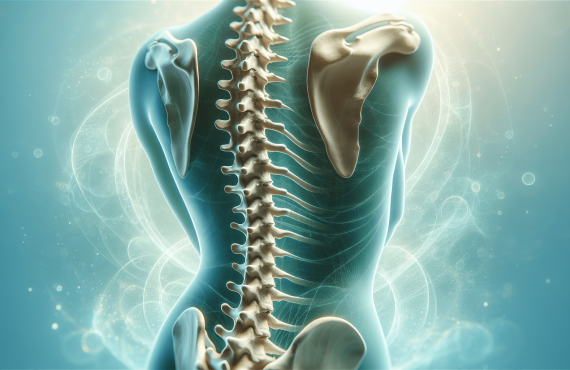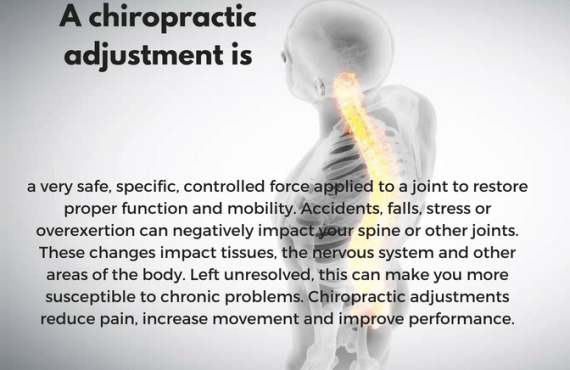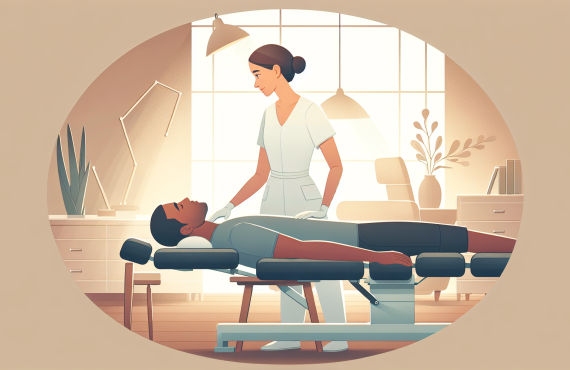Have you ever found yourself slouching over your keyboard, only to notice that familiar twinge in your back a few hours later? Well, you’re not alone. Maintaining good postural health is crucial, yet so many of us unknowingly compromise it in our day-to-day activities. So, what can you do to fix it? Improving your posture may seem like a daunting task, but with the right information, you can turn it into a manageable and even pleasant part of your daily routine.
Table of Contents
Why Posture Matters More Than You Think
Posture is more than just standing up straight so you can look stately and poised. It has profound effects on your overall health and well-being. When we carry ourselves properly, we align our bones correctly, reduce the stress on the ligaments that hold the spinal joints together, and allow muscles to work more efficiently. This means less fatigue, reduced likelihood of neck and back pain, and even improved mood and productivity.
The Anatomy of Posture
Understanding the basics of your own anatomy can give you a clearer picture of why posture is so significant. Your spine is a complex structure composed of vertebrae, discs, and nerves. It supports your body’s weight and protects your spinal cord. Good posture maintains the three natural curves (cervical, thoracic, and lumbar) of the spine. Altering these natural curves through poor posture can result in a cascade of problems ranging from minor discomfort to severe pain.
The Ripple Effects of Poor Posture
Slouching is more than a visual blight or a token gesture of laziness; it can have ripple effects throughout your body. Poor posture can lead to misaligned muscles and joints, resulting in aching backs, stiff necks, and other bodily grievances. It can even affect digestion and lung capacity, as poorly aligned organs don’t function optimally. Unchecked, these ailments can lead to chronic issues, which is something nobody wants.
Common Postural Problems
Everyone has their unique quirks and tendencies when it comes to posture, but some issues are more prevalent than others. Being aware of these common postural problems is the first step towards improving your posture.
Forward Head Posture
Often referred to as “text neck,” forward head posture is as common in today’s digital age as coffee spills on your morning commute. It’s the result of prolonged use of smartphones, tablets, and computers. In this posture, your head protrudes forward, causing neck pain and affecting the alignment of the entire spine.
Rounded Shoulders
Another frequent issue is rounded shoulders, which occur when the muscles in your shoulders and back weaken, causing the shoulders to slump forward. This can be exacerbated by desk jobs, poor workout form, and even everyday activities like driving.
Anterior Pelvic Tilt
The anterior pelvic tilt is an exaggeration of the curve in the lower back, often due to prolonged sitting. This posture can lead to lower back pain and affect mobility. It’s particularly common among those who spend large chunks of the day sitting at a desk without taking breaks to stretch.

Improving Your Posture: A Comprehensive Guide
Now that you understand the importance of good posture and some common pitfalls, let’s discuss how you can improve it. The good news is that with a few consistent practices, you can correct these issues and maintain a healthier posture.
Ergonomics in the Workspace
Work often requires us to stay in certain positions for prolonged periods, which is why ergonomics is key. Adjust your chair and desk so that your feet rest flat on the floor and your knees are level with your hips. Your computer screen should be at eye level, and your arms should remain close to your sides. This setup reduces the risk of slouching and encourages a natural posture.
Exercise and Stretching
Physical activity is important not only for maintaining your overall health but also for correcting and enhancing your posture. Incorporate exercises that strengthen your core, back, and shoulder muscles—these areas are crucial for good posture. Activities like yoga and Pilates are also excellent options as they emphasize balance, strength, and flexibility.
| Exercise | Target Area | Benefit |
|---|---|---|
| Plank | Core | Strengthens core muscles to support better posture |
| Rows | Back | Enhances upper back muscles to prevent rounded shoulders |
| Child’s Pose | Whole Body | Stretches spine and relieves tension in back muscles |
Mindfulness and Habit Formation
Your habits significantly influence your posture. Pay attention to how you sit, stand, and move throughout your day. Practicing mindfulness can be as simple as setting a timer to remind yourself to check your posture every hour. Over time, these little reminders can help turn good posture into a subconscious habit.
Chiropractic Care and Professional Guidance
Sometimes, despite our best efforts, we need expert help. This is where chiropractic care can play an essential role in maintaining and improving posture. Chiropractors, like Dr. Craig Henry and Dr. Aaron Hixon at Henry Chiropractic in Pensacola, Florida, can offer personalized assessments and treatments tailored to your specific needs. They utilize various techniques, from spinal manipulation to soft tissue mobilization, to correct postural imbalances and enhance overall health.
Lifestyle Adjustments for Better Posture
Beyond exercises and ergonomic workspaces, consider your overall lifestyle and how it affects your posture.
The Power Nap
Sleep posture is often overlooked but critical. Ensure your mattress provides adequate support, and use pillows that maintain a neutral alignment of your spine. Side sleepers should consider using a pillow between their knees to prevent lower back pain.
Nutrition and Hydration
While not directly related to posture, nutrition and hydration play a role in maintaining healthy muscles and bones. A balanced diet rich in calcium and vitamin D promotes bone health, while staying hydrated keeps your muscles and ligaments supple.
Stress Management
High stress levels can unconsciously affect your posture through tension and muscle tightness. Engage in stress-reduction activities like meditation, deep-breathing exercises, or leisurely hobbies to help your muscles relax and promote better posture.

The Long-Term Benefits of Good Posture
By now, you may be wondering why you should go through all this effort. The truth is, good posture offers numerous long-term benefits that extend far beyond avoiding a sore neck or back.
Improved Confidence and Mood
Good posture not only affects your physical health but also has psychological benefits. Standing tall with proper alignment can boost your confidence, decrease stress levels, and improve your mood. It’s a simple change with profound effects on how you perceive yourself and how others perceive you.
Enhanced Performance
Whether you’re an office worker or an athlete, improved posture can enhance your performance. For office workers, it means fewer aches and pains and increased productivity. For athletes, good posture can enhance performance by improving balance and coordination.
Reduced Risk of Injury
Maintaining a healthy posture reduces the risk of injury both in everyday situations and during physical activities. Proper alignment ensures that your body can better absorb and distribute impact forces, which means fewer strain injuries.
Getting Help When You Need It
Despite your best efforts, if you continue experiencing discomfort or difficulty with your posture, professional guidance may be needed. At Henry Chiropractic, Dr. Craig Henry and Dr. Aaron Hixon can assess your posture, identify underlying issues, and provide tailored treatments to suit your needs. They’re dedicated to improving your health and wellness with a comprehensive and personalized approach.
If you are in the Pensacola area, consider visiting them at:
Henry Chiropractic
1823 N 9th Ave
Pensacola, FL 32503
(850) 435-7777
https://drcraighenry.com/
Conclusion
Improving and maintaining your postural health is not just about aesthetics—it’s integral to your overall health and well-being. It requires a conscious effort to overcome poor habits, enhance your living and working environments, and make healthier lifestyle choices. With dedication, awareness, and perhaps a bit of professional help, you can maintain excellent posture and enjoy the myriad benefits it offers for years to come. Remember, your future self will thank you for the steps you take today to improve your body’s alignment and functionality.











































































































